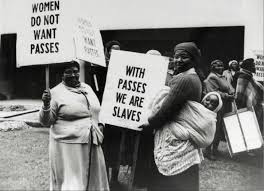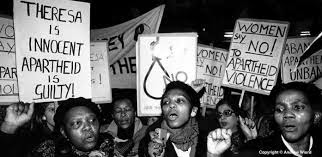Posted on July 18, 2022
This is an update of my post published on July 18, 2011:
He spent 27 years in prison.
Just four years after his release, he was elected president of his nation!
Those two things do not normally go together. However, the stories of Nelson Mandela and his country, South Africa, are not your average stories.
South Africa had the fortune and MISfortune of having a lot of mineral wealth, particularly diamonds and gold. It was also located in an important area of the world, at the very tip of Africa, a spot passed by ships traveling between Europe and Asia. That meant that world powers fought over control of the land, the strategic location, and all that wealth. In 1961, after years of colonization and invasion, slavery and wars, South Africa became a truly independent republic –– Hooray! ––
BUT –– Boo! –– it was established as a nation with legally institutionalized racial segregation and discrimination. The descendants of the original Black residents –– and owners! –– of the land were kept in a dreadful system in which they were way less than first-class citizens. This dreadful system of legal segregation and discrimination was known as apartheid.
Apartheid was an appalling policy that trampled on the rights of the majority of the people of South Africa. Many Black people in South Africa worked tireless to end apartheid.
 |
| Women in South Africa and in nearby nations worked to win their rights, to free political prisoners, and to end apartheid. |
People from other African nations joined in the effort, and eventually people from all around the world called for an end to apartheid. Some participated in protest demonstrations and boycotted South African businesses. (My own sister was briefly held by police here in the U.S. for her participation in an anti-apartheid demonstration!)
Within the country of South Africa, anti-apartheid activists used strikes, marches, protests, and even bombings and sabotage to fight against the oppression. Mandela, one of the anti-apartheid leaders, was arrested and convicted of sabotage, and he was sentenced to life in prison.
While he was still a young man, before his arrest, Mandela (born on this day in 1918) had earned a university degree. While in prison, he studied law through correspondence courses from a British university and earned his law degree.
When he was finally released from prison in 1990, Mandela became a strong voice for negotiation and reconciliation. He showed, not just leadership, but greatness. And he won more than 250 awards, including the 1993 Nobel Peace Prize. He was elected South Africa’s first Black president in 1994.
Mandela’s life is a treasure to all humanity because of his efforts for human rights and for non-violent civil disobedience.
Also on this date:
Scientist and polymath Robert Hooke’s birthday
Astronaut John Glenn’s birthday
Anniversary of a perfect game
Plan ahead:
Check out my Pinterest boards for:
-
July holidays
-
July birthdays
-
Historical anniversaries in July
And here are my Pinterest boards for:
-
August holidays
-
August birthdays
-
Historical anniversaries in August






















